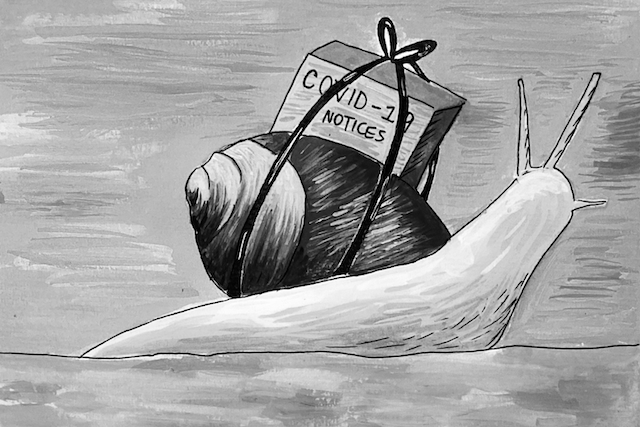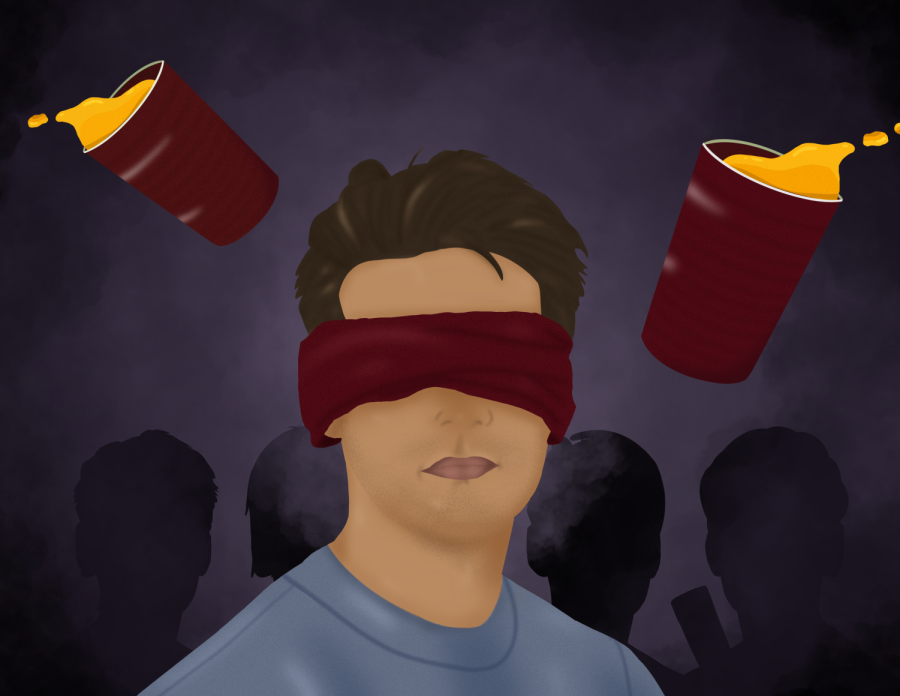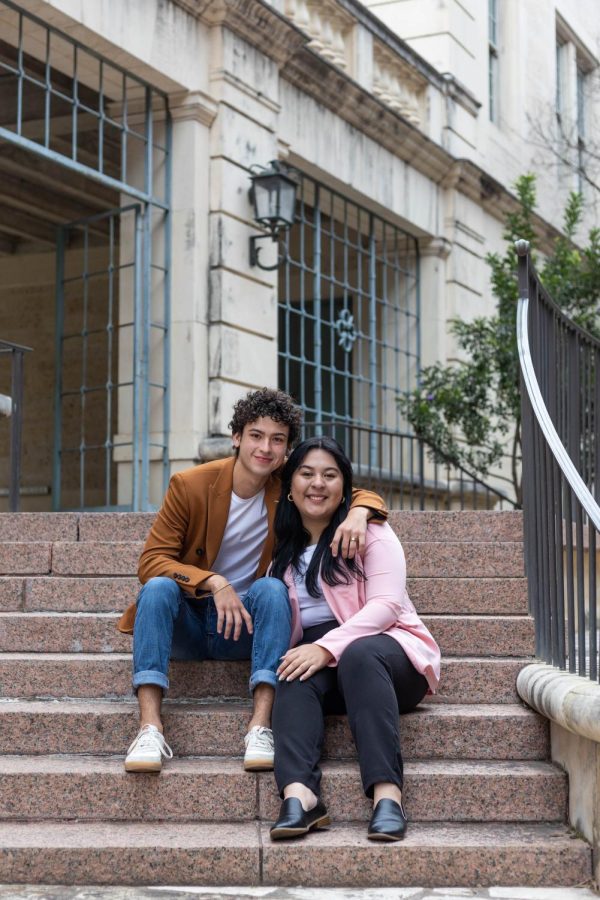On Sept. 9, Emily’s suitemate told her and Emily’s roommate that she had tested positive for COVID-19. The hours afterward were filled with confusion, stress and radio silence from UT as Emily and her roommate scrambled to get tested. It wasn’t until Sept. 10 at noon that UT sent out a general email informing students someone on their floor had COVID-19.
By then, Emily’s roommate had already tested positive.
Emily and her roommate, who both live in Jester West Residence Hall, asked us not to print their full names to avoid any potential retribution. Their stories indicate just how faulty UT’s COVID-19 prevention measures can be.
UT has made it incredibly stressful to live on campus. With a lack of clear communication, on-campus residents are often forced to rely on rumors and other confused students for information.
To better protect students, UT must make operational and procedural changes to the way it deals with COVID-19 in dorms.
“It was honestly so scary for me because I didn’t know what to do or who I was supposed to contact,” Emily’s roommate said. “I was just sitting in my dorm room in shock with Emily.”
When a student who lives in a residence hall tests positive, University Housing and Dining only notifies students who live on that same wing or floor. Residents on other floors have no idea when someone in their building tests positive.
Susan Hochman, associate director for assessment, communication and data informatics for University Health Services and the Counseling and Mental Health Center, said federal, state and local laws prevent UHD from notifying the whole building.
“We are subject to HIPAA and FERPA and also Austin Public Health (laws),” Hochman said. “UT works with Austin Public Health to determine what is the appropriate level of detail that meets that minimum necessary with respect to the goal of preventing transmission of the disease.”
Hochman said if UT were to release information about positive cases to the entire dorm building, they would violate legal guidelines because the whole dorm “is beyond what would be considered the minimum necessary (to inform) from a public health standpoint.”
This lack of communication undoubtedly contributes to the paranoia and anxiety some students feel while living communally.
“I feel like since we’re all going up and down the same elevators, going to the same dining halls, we should all know what’s up on other floors,” said Christian Bear, an applied learning and development freshman and Jester West resident.
Hochman also said UT wanted to avoid alarm fatigue to prevent students from becoming indifferent to important information. But students are stressed and overwhelmed by UHD’s lack of guidance on what to do when they come in contact with someone who has tested positive.
Notifications about positive cases are not the only problem.
UT has provided only one real educational resource for students navigating life on campus while COVID-19 rages on: the required “Staying Healthy in A Changing Environment” module. However, these modules only feature vague suggestions such as, “Seek medical attention immediately by calling 911 if you have serious symptoms,” and provide limited information on UT-specific procedures.
According to the general floorwide email Emily received, UHD said it had made “every effort to notify primary close contacts (those exposed for 15 minutes or more at a distance of less than 6 feet)” of the resident who had tested positive.
Even though they shared a small bathroom with their suitemate, Emily said she and her roommate never received any direct communication from UT that they had come in close contact with someone who tested positive.
“We really didn’t know what to do, who to call (or) what procedures to follow if someone near us got COVID-19,” Emily’s roommate said. “I wish that UT would’ve given us the information so we could know what to do and do it quickly.”
We wrote this editorial to shed light on how UT’s current procedures negatively impact students living on campus. Although we understand there are legal obstacles, this is no excuse for UT’s refusal to revise its COVID-19 procedures.
As we continue to see students in campus residence halls contract the virus, UT must fill in the gaps — before even more students test positive.





















